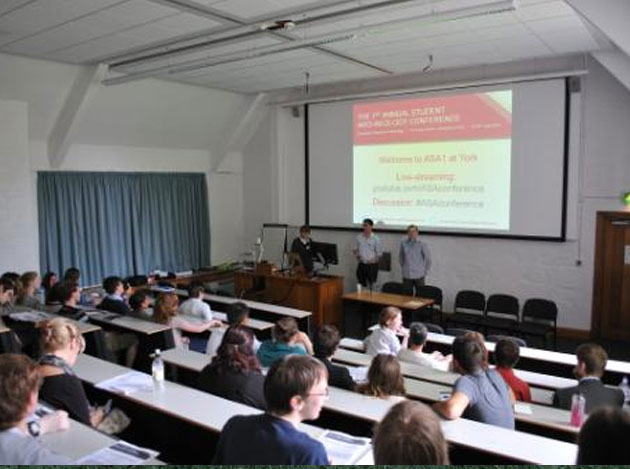The first Annual Student Archaeology conference at York in June was a huge success with around 80 students in attendance from as far afield as Aberdeen and Southampton, and 24 speakers, 8 posters, tours of York and a meal in the programme.
I would really like to ensure that this important event for students is sustainable and continues to grow in the long-term, so I am setting up an annual national committee where one student (either undergraduate or postgraduate) represents their university and promotes the ASA conference series to their fellow students, as well as offers opinions on the overall direction of the series and review applications from students to host the following year’s conference. This will be a flexible role and there will only be one meeting for committee members to attend which will most likely be at the conference each year. Therefore, this will hopefully be a fantastic opportunity for students to rally for student involvement in archaeological research and debate, and have influence over a national conference, without being responsible for actually organising it or having to spend much time in order to see results (the idea being that speaking to course mates and posting about ASA on internal Facebook groups, etc. is very helpful to ASA and not difficult for members to do).
Students who are interested in sitting on the national committee should email contact.asaconference.org and if they are the only student from their university to express an interest then they will join straight away, though if there are multiple students from a particular university interested in joining, the members who joined straight away will ask those remaining to email a short statement of interest and they will review those to select one person.
In addition to the national committee which oversees the general direction of the conference series, there will be the conference organising committee which works separately to organise the year’s conference, including facilities, the programme and abstract and poster submissions. This committee requires a more hands-on group of students from a single university where the conference is to be held. Application forms are available from the ASA website (www.asaconference.org.uk) and any interested groups of students should fill them in with answers that demonstrate the viability that their university has facilities to host the conference and as individuals they have the work ethic and skills to carry out this demanding yet fulfilling task.
The deadline for both opportunities is 12 January and the email address to use is contact.asaconference@gmail.com.

